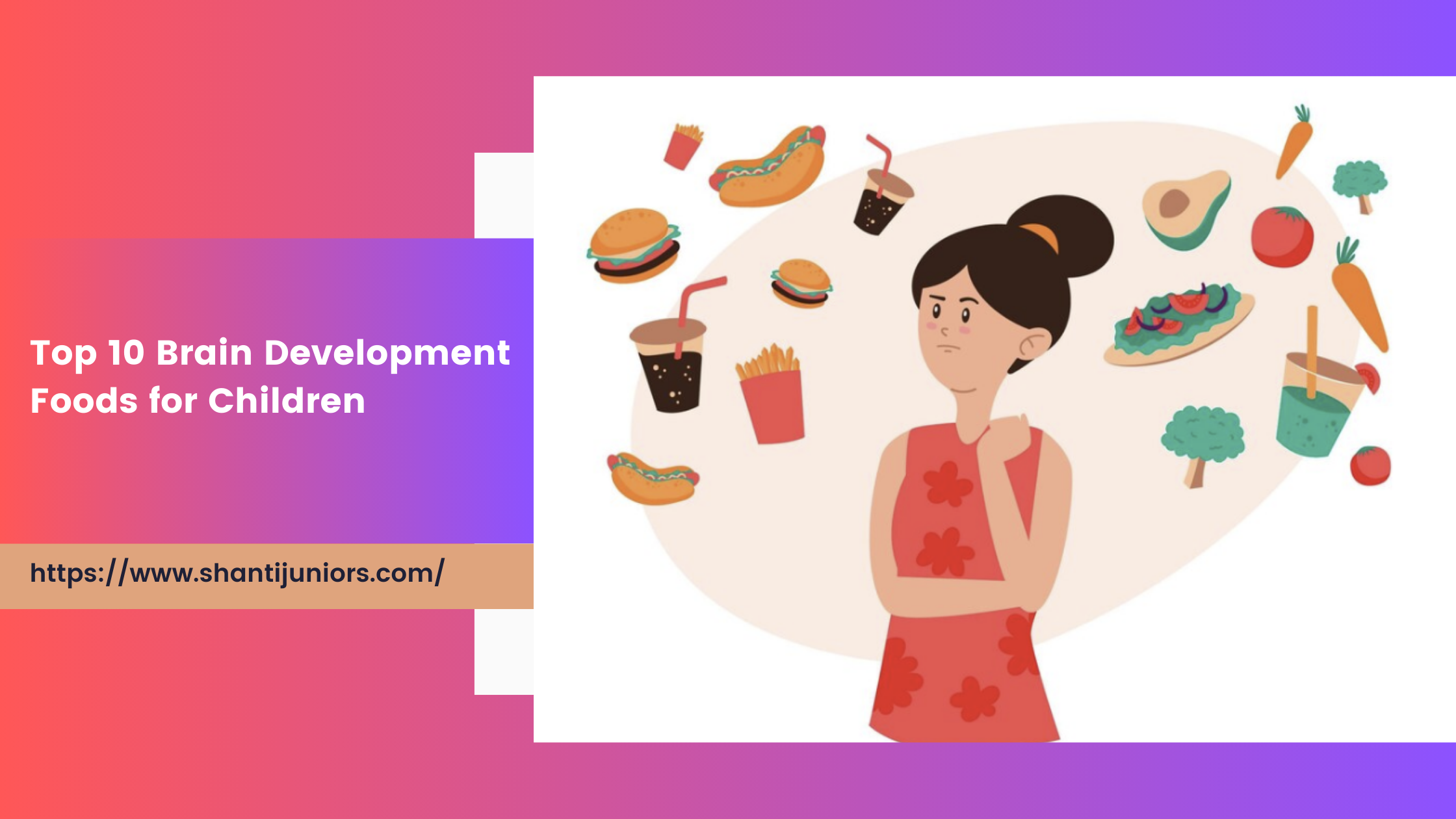

The foods they consume play a significant role in enhancing cognitive functions, improving memory, and boosting overall brain health. Here, we present the top 10 brain development foods for children, which should be an essential part of their diet.
Ensuring that children receive the best nutrition is crucial for their brain development. The foods they consume play a significant role in enhancing cognitive functions, improving memory, and boosting overall brain health. Here, we present the top 10 brain development foods for children, which should be an essential part of their diet.
Fatty fish such as salmon, mackerel, and sardines are rich in omega-3 fatty acids. These essential fats are critical for brain health. Omega-3s aid in building brain and nerve cells and are essential for learning and memory. Regular consumption of fatty fish can improve cognitive function and reduce the risk of developing neurodegenerative diseases.
Eggs are an excellent source of choline, a nutrient that is vital for brain development. Choline helps in the production of acetylcholine, a neurotransmitter involved in mood and memory regulation. Additionally, eggs provide high-quality protein and essential vitamins such as B12, which supports brain function.
Berries like blueberries, strawberries, and blackberries are packed with antioxidants, particularly vitamin C and flavonoids. These antioxidants help in reducing oxidative stress and inflammation in the brain, promoting better cognitive functions. Berries also improve memory by enhancing communication between brain cells.
Also Read: 4 Key Factors To Consider While Choosing A Preschool Franchise
Nuts and seeds are rich in vitamin E, which is known to protect the brain from oxidative damage. They also provide healthy fats, proteins, and fibers, making them a perfect snack for brain health. Walnuts, in particular, are beneficial as they contain high levels of DHA, a type of omega-3 fatty acid crucial for brain development.
Whole grains like oats, barley, and brown rice are excellent sources of complex carbohydrates and fiber. These nutrients provide a steady supply of glucose, which is the primary energy source for the brain. Whole grains also contain B vitamins, which are essential for maintaining brain health and preventing cognitive decline.
Leafy greens such as spinach, kale, and broccoli are rich in folate and vitamins like E and K. These nutrients are crucial for brain development and cognitive functions. Folate, in particular, helps in the production of neurotransmitters and reduces the risk of neural tube defects during pregnancy.
Yogurt is a good source of probiotics and essential nutrients like calcium and protein. Probiotics support gut health, which is closely linked to brain health through the gut-brain axis. The calcium in yogurt is vital for the proper functioning of the nervous system, while protein helps in the production of neurotransmitters.
Avocados are packed with healthy monounsaturated fats that promote healthy blood flow, which is crucial for brain health. They also contain vitamin K and folate, which help prevent blood clots in the brain and enhance cognitive functions. Additionally, avocados are rich in antioxidants that protect the brain from oxidative stress.
Beans are an excellent source of complex carbohydrates and proteins, providing a steady supply of energy to the brain. They are also rich in iron, zinc, and magnesium, which are essential for maintaining cognitive functions. Beans help in stabilizing blood sugar levels, preventing energy crashes that can affect concentration and memory.
Also Read: Tips to Strengthen a Healthy Parent-Child Relationship
Apples are high in quercetin, an antioxidant that helps in protecting brain cells from oxidative damage. They also provide a good amount of fiber and vitamin C, which support overall brain health. Eating apples regularly can improve cognitive performance and memory retention.
Balanced Meals: Ensure that each meal includes a combination of proteins, healthy fats, and complex carbohydrates to provide sustained energy and support brain functions.
Healthy Snacks: Replace sugary snacks with brain-boosting options like nuts, seeds, berries, and yogurt.
Creative Recipes: Incorporate these foods into your child’s favorite dishes. For instance, add spinach to smoothies, use avocado as a spread, or make oatmeal with berries and nuts.
Regular Consumption: Make these foods a regular part of your child’s diet to ensure consistent brain health benefits.
By integrating these top 10 brain development foods into your child's diet, you can support their cognitive growth and overall brain health. Prioritizing nutrition is a vital step in ensuring that children reach their full potential, both academically and personally.